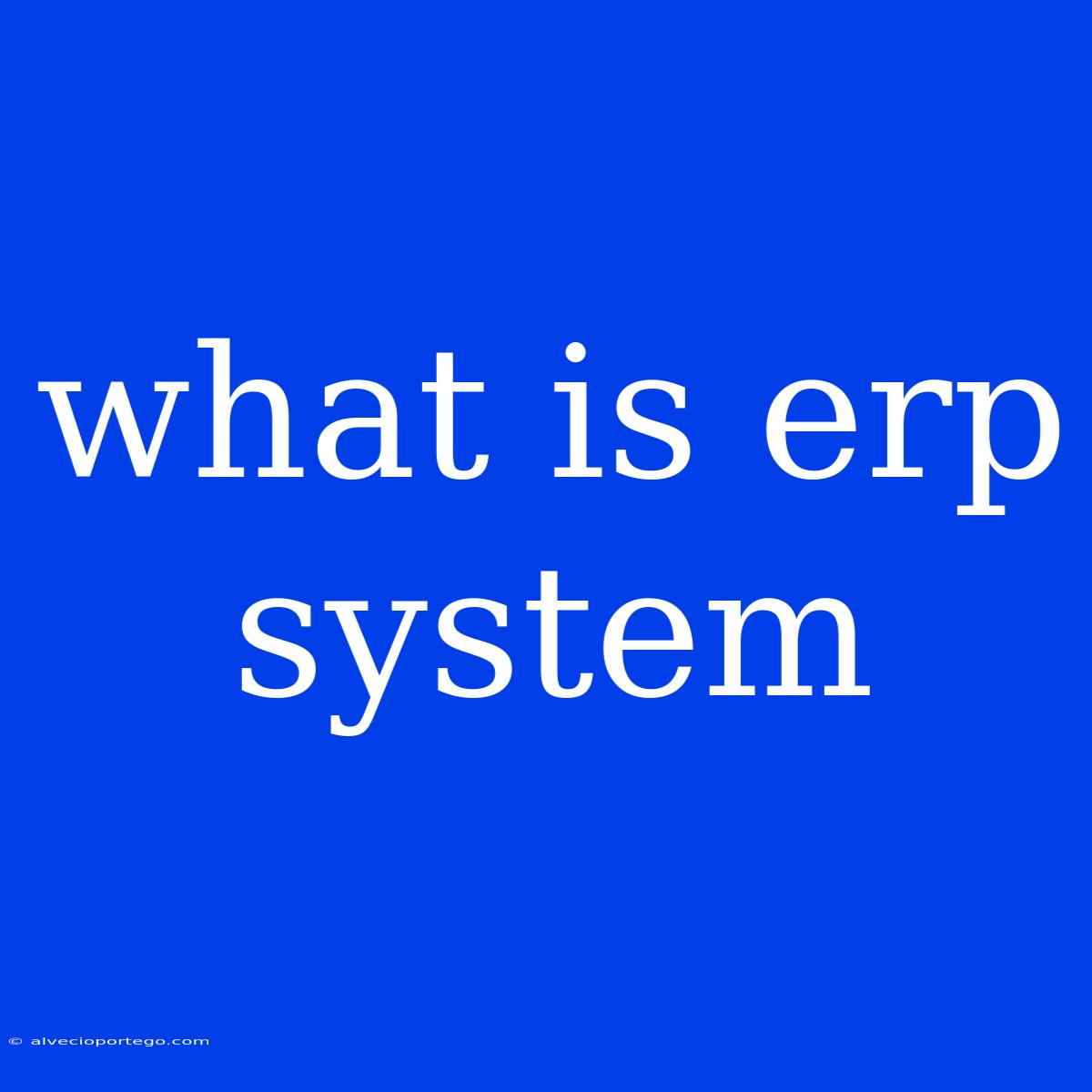What is an ERP System?
An ERP (Enterprise Resource Planning) system is a software suite designed to integrate and automate various business processes within an organization. It acts as a centralized hub for managing data and operations across different departments, including finance, human resources, supply chain, manufacturing, sales, and marketing.
Key Features of an ERP System:
- Centralized Database: An ERP system stores all critical business data in a single, integrated database, eliminating data silos and enabling real-time access to information for all authorized users.
- Process Automation: Automates routine tasks and workflows, streamlining processes and improving efficiency.
- Real-Time Reporting and Analytics: Provides insights into key performance indicators (KPIs) and operational data, supporting informed decision-making.
- Improved Collaboration: Facilitates communication and collaboration among departments by providing a shared platform for information exchange.
- Enhanced Customer Service: Enables better tracking of customer interactions and orders, improving customer service and satisfaction.
- Streamlined Inventory Management: Optimizes inventory levels, reduces storage costs, and prevents stockouts.
- Better Financial Control: Provides detailed financial reports, budgeting tools, and audit trails for improved financial management.
- Increased Compliance: Helps organizations meet industry regulations and compliance requirements.
Benefits of Implementing an ERP System:
- Improved Efficiency and Productivity: Automates processes, reduces manual effort, and eliminates redundancies, leading to increased efficiency and productivity.
- Enhanced Decision-Making: Real-time data and analytics provide better insights for informed decision-making.
- Reduced Costs: Streamlines operations, optimizes resource allocation, and reduces waste, resulting in cost savings.
- Improved Customer Satisfaction: Enables better customer service, faster response times, and personalized interactions.
- Increased Agility and Scalability: Provides a flexible platform that can adapt to changing business needs and scale as the organization grows.
- Competitive Advantage: Gives businesses a competitive edge by enabling them to operate more efficiently, respond to market changes faster, and improve customer service.
Types of ERP Systems:
- On-Premise ERP: Software installed and hosted on the organization's own servers.
- Cloud-Based ERP: Software accessed over the internet and hosted on a third-party server.
Choosing the Right ERP System:
Selecting the right ERP system is crucial for successful implementation. Consider the following factors:
- Business Needs: Identify the specific processes and departments that require integration and automation.
- Industry Specific Requirements: Choose a system that caters to the specific needs of your industry.
- Budget and Resources: Determine the cost of implementation, ongoing maintenance, and training.
- Vendor Reputation and Support: Evaluate the vendor's track record, support services, and customer testimonials.
Conclusion:
An ERP system can be a powerful tool for organizations looking to improve efficiency, streamline processes, and gain a competitive edge. By carefully considering their specific needs and evaluating available options, businesses can choose the right ERP system to drive their growth and success.

